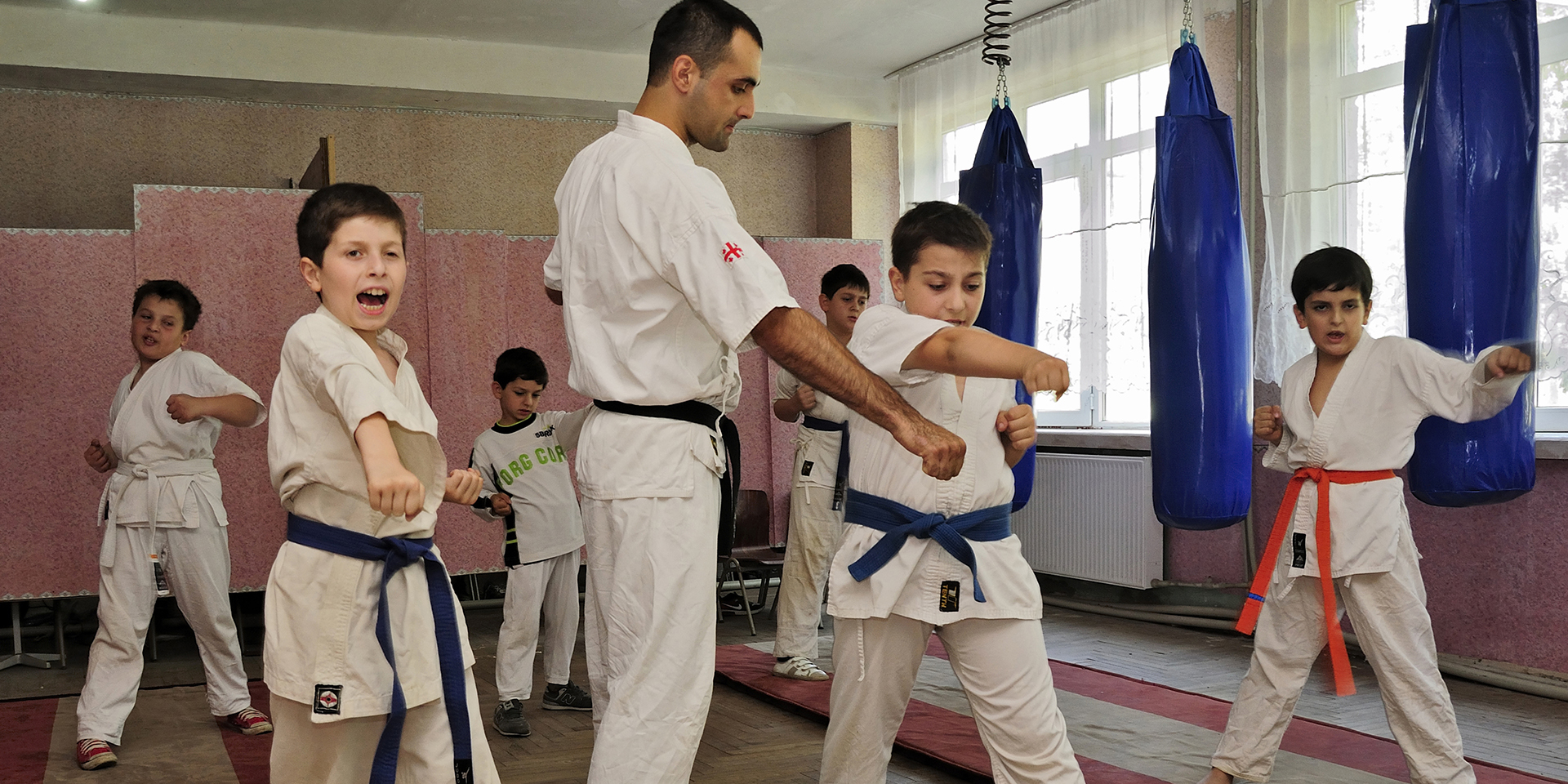NEO worked with local partner organizations to develop two- to three-month courses in careers as diverse as baking, welding, carpentry, and stonemasonry. The project also introduced new techniques and equipment to farmers, from fruit tree pruning methods to drip irrigation and greenhouse production. To provide Georgians with startup capital for new careers and expanded ventures, NEO offered interest-free loans and in-kind grants.
According to Tamar Mikautadze of AbkhazIntercont, one of Chemonics’ local partner organizations, citizens were quick to take advantage of these new options: “We have never before seen so much happiness on the faces of our beneficiaries, who spared no effort to escape poverty.”
Strengthening Character Through Karate
One of these entrepreneurs, Giorgi Pataraia, was only 10 years old when he fled his home. He and his family were displaced from Abkhazia by the war in 1992, like thousands of other Georgians. Now, Giorgi is building a life in the town of Kutaisi and has received a degree in engineering.
But his deep love of martial arts has drawn Giorgi toward a different career path. To pursue his passion, he rented a sports hall from a nearby school and began to transform it into a karate studio with help from friends. However, with homemade equipment and a poorly suited space, his business was not able to grow.
A new door opened when Giorgi applied for a business management training course offered through the NEO project. He also took advantage of a small interest-free loan, which he invested in professional-quality punching bags and in renovating the space.
Now, the karate studio is three years old and has seen its revenue grow by 30 percent, allowing Giorgi to buy new heating equipment, mats, and a climbing rope. He is proud of the hard work he has put into the studio and attributes support from NEO for helping him transition what was once a hobby into a growing business.
With his studio in a stable position, Giorgi can spend more time reflecting on what the lessons mean for his students. “Karate is one of the best ways to encourage students and teach them responsibility,” he said. “My magic formula is to exercise the body, soul, and mind.”
Starting Fresh with Vegetable Farming
Another participant, Jambul Abshilava, was also an internally displaced person interested in founding his own small business. After being driven from his home and moving into a converted school building with 30 other families, Jambul was venturing to rebuild his life.
“When starting from zero, you’re not going to get anywhere without working extremely hard,” he said.
Jambul’s efforts were given a boost by NEO, which provided him with equipment to build a greenhouse and trained him on best practices in vegetable production. Two years of good harvests have shown a positive return on investment, boosting his income by nearly 40 percent. This new farmer now sells his tomatoes, cucumbers, and herbs at the local market, but he has set his sights higher. Once his harvests are large enough, he will sell his vegetables directly to distributors.
Being able to manage his own small business means a great deal to Jambul: “By supporting (internally displaced people), USAID gives us the opportunity to believe in ourselves and lets us carve out a better path in this world.”



























